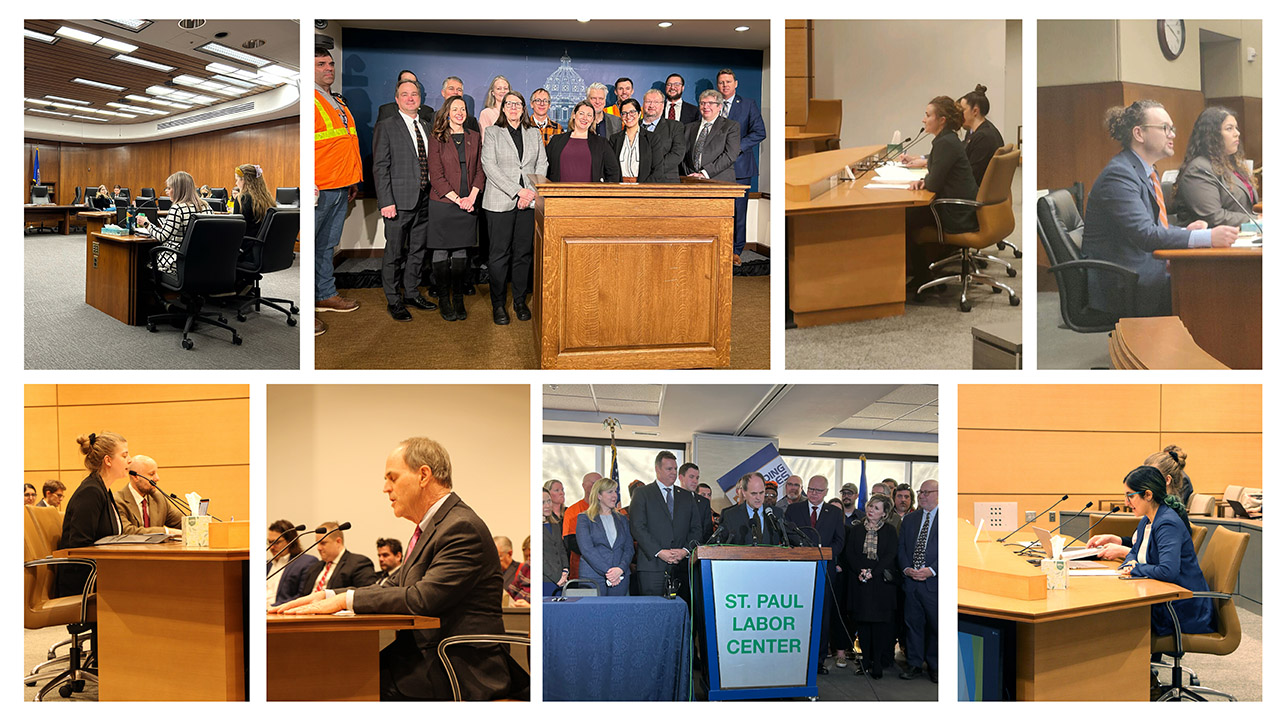
Minnesota’s legislative landscape, alongside historic federal investments, has put the Minnesota Legislature in the strongest position in decades to act on climate and at the midpoint of the 2023 legislative session, our elected leaders are busier than ever. That also means that the Fresh Energy team is busier than ever as we track more than 100 bills and actively engage in dozens through oral and written testimony, letters of support, and beyond.
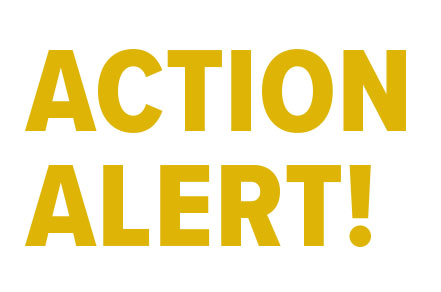
With the swift passage of the 100% clean electricity bill into law, 2023 is going to go down in the history books as a landmark year for climate at the Minnesota Legislature. That said, 100% was also a clear signal from our state policymakers of more to come and the Legislature has remained extremely productive. Fresh Energy is keeping close tabs on the many exciting energy and climate policies under discussion at the Capitol and our policy staff are hard at work helping to support our state policymakers and ensuring we maximize every opportunity this moment presents. Already, 10 different Fresh Energy staff members have offered live testimony at least once this year, with even more to come.
While we are always excited about the clean energy and climate bills at the Legislature, we wanted to share a few that we’re especially interested in at this session midpoint.
Leveraging unprecedented federal funding.
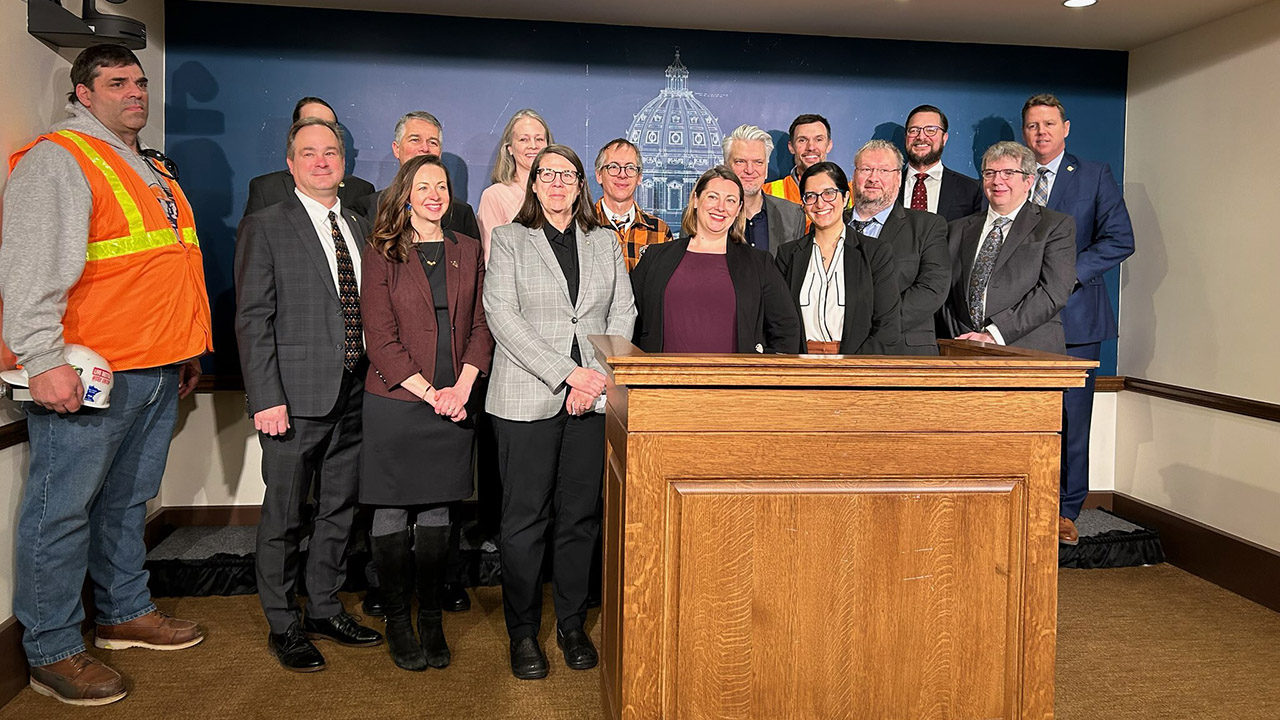
Significant long-term federal investments in clean energy are coming to Minnesota through the Infrastructure Investment and Jobs Act (IIJA) and Inflation Reduction Act (IRA). Our state and our communities are depending upon the Minnesota Legislature to allocate matching dollars to unlock the state-based grants that are within these laws, and Fresh Energy has this issue top-of-mind this session. Additionally, the Biden-Harris Administration’s historic Justice40 Initiative set a goal that at least 40% of federal funds flow to disadvantaged communities—and Minnesota has the opportunity to follow their lead and ensure these investments set new benchmarks for equity and environmental justice outcomes in our state. Currently, funding for Federal matching funds is represented across multiple bills that would direct resources through multiple Minnesota state agencies. An example is the Minnesota Department of Commerce’s State Competitiveness Fund proposal.
Amping up Minnesota homes with electric panel upgrades.
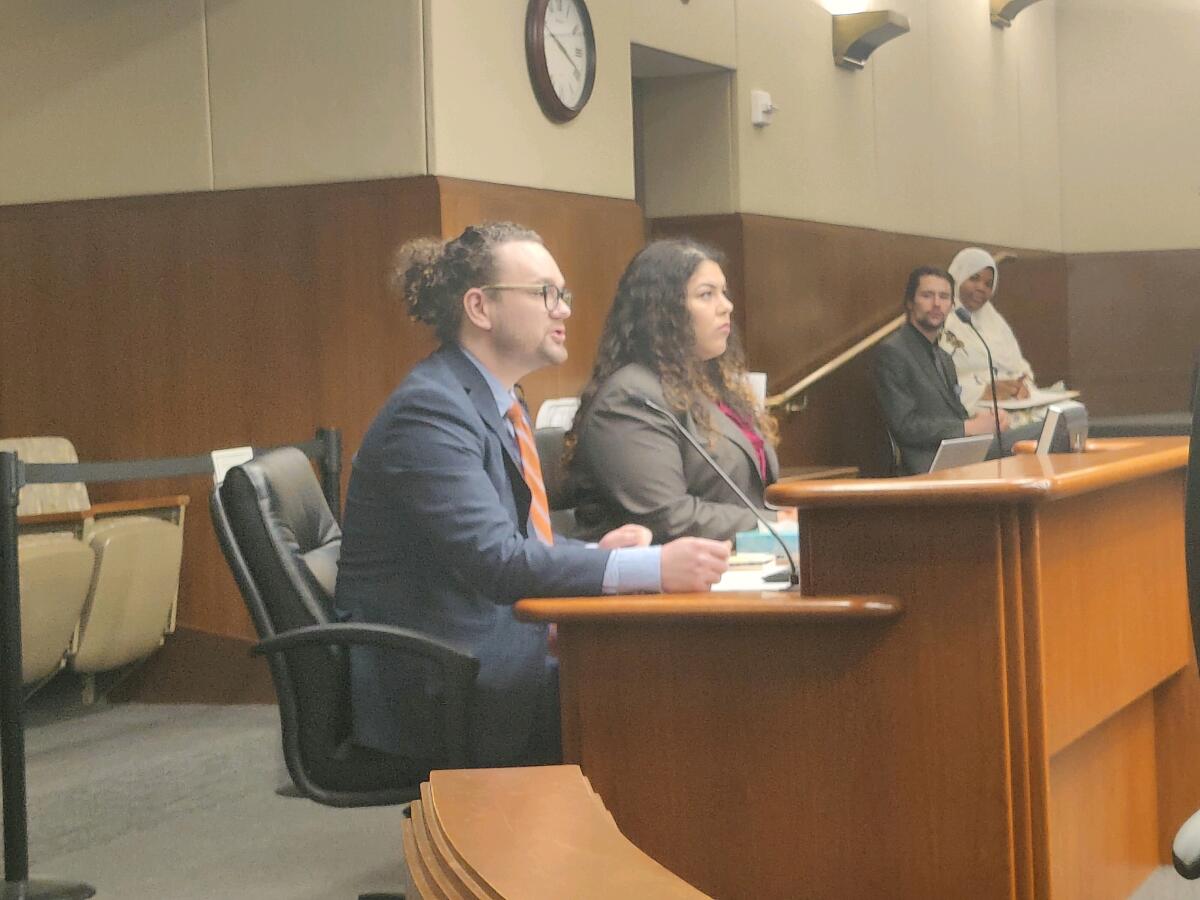
Fresh Energy’s electric panel upgrade grant program bill (Senate File 1787/House File 849) is being authored by Assistant Majority Leader Rep. Athena Hollins in the House and is carried in the Senate by Senator Tou Xiong (Maplewood). A home’s electric panel can be a surprising and often expensive roadblock to home electrification and this bill would establish a new grant program to support panel upgrades in residential properties, including both single-family homes and multifamily buildings. The program would be targeted to low and middle-income households, with the largest grants for those under 80% of the Area Median Income. In most cases, it will cover the entire upgrade for these income-qualified families. Learn more about the importance of panel upgrades in electrification and this bill in our recent blog post.
Investing in green fertilizer production.
Fertilizer in the United States is produced primarily using fossil fuels like natural gas, coal, or oil, and this production process is enormously carbon intensive. According to data from the Minnesota Pollution Control Agency, crop and animal agriculture in Minnesota accounted for more than 25% of our state’s total greenhouse gas emissions in 2020—putting us at an important inflection point.
Fortunately, innovative strategies that utilize hydrogen from wind and solar energy (commonly known as “green” hydrogen) to produce vastly less carbon-intensive green fertilizer are emerging and Minnesota is on the forefront of these advancements. (Interested in hydrogen? Learn more in our recent blog post!) The bipartisan green fertilizer bill, Senate File 2513/House File 2762 is authored by Senator Aric Putnam (St. Cloud) in the Senate and Representative Eric Koegel (Spring Lake Park) in the House and would invest $70 million in Minnesota-based green fertilizer production, which would have massive economic development opportunities for our state and rural Minnesota by entering and decarbonizing the multi-billion-dollar fertilizer industry.
Fresh Energy is advancing this bill in partnership with the Minnesota Farmer’s Union and the University of Minnesota’s West Central Research and Outreach Center, led by Mike Reese, which has pioneered the use of wind power to create green ammonia, the key ingredient in fertilizer. The local production and use of green ammonia for fertilizer could have real benefits to Minnesota’s farmers, rural economy, and our climate, and it is something we’re excited to work on in 2023 and beyond.
Establishing a path to better commercial building codes.
The cheapest energy is the energy we don’t use, so it stands to reason that building energy-efficient, future-ready commercial buildings in Minnesota will help save money and energy over the long term, but also help Minnesota meet its climate goals. Senate File 1368 authored by Senator Lindsey Port (Burnsville) and House File 772 authored by Representative Larry Kraft (St. Louis Park) aims to do just that. Fresh Energy is helping to champion this bill—alongside partners at Center for Energy and Environment (CEE), IBEW, and partners in Minnesota cities including St. Louis Park—that works to ensure our commercial code includes as much energy efficiency as possible. As a result, this bill would put our commercial building sector on a path to achieve significant reductions in annual net energy consumption by 2036 by recognizing the value of Minnesota’s established process for regulatory review and update to the commercial energy code. Want to learn more about building codes? Check out this blog!
Protecting Minnesota’s most vulnerable communities.
Fresh Energy is a partner in the Frontline Communities Coalition working to advance The Frontline Communities Protection Act Senate File 3211 authored by Senate President Bobby Joe Champion (Minneapolis) and House File 3146 authored by Representative Fue Lee (Minneapolis). Many Minnesota communities are already overburdened by decades of existing pollution and this bill would ensure that the state considers these already existing cumulative impacts from environmental pollution in locations where new projects are being proposed for environmental review and permitting. This bill has significant equity and justice impacts that would give some communities stronger regulatory protections against pollution.
So much solar!
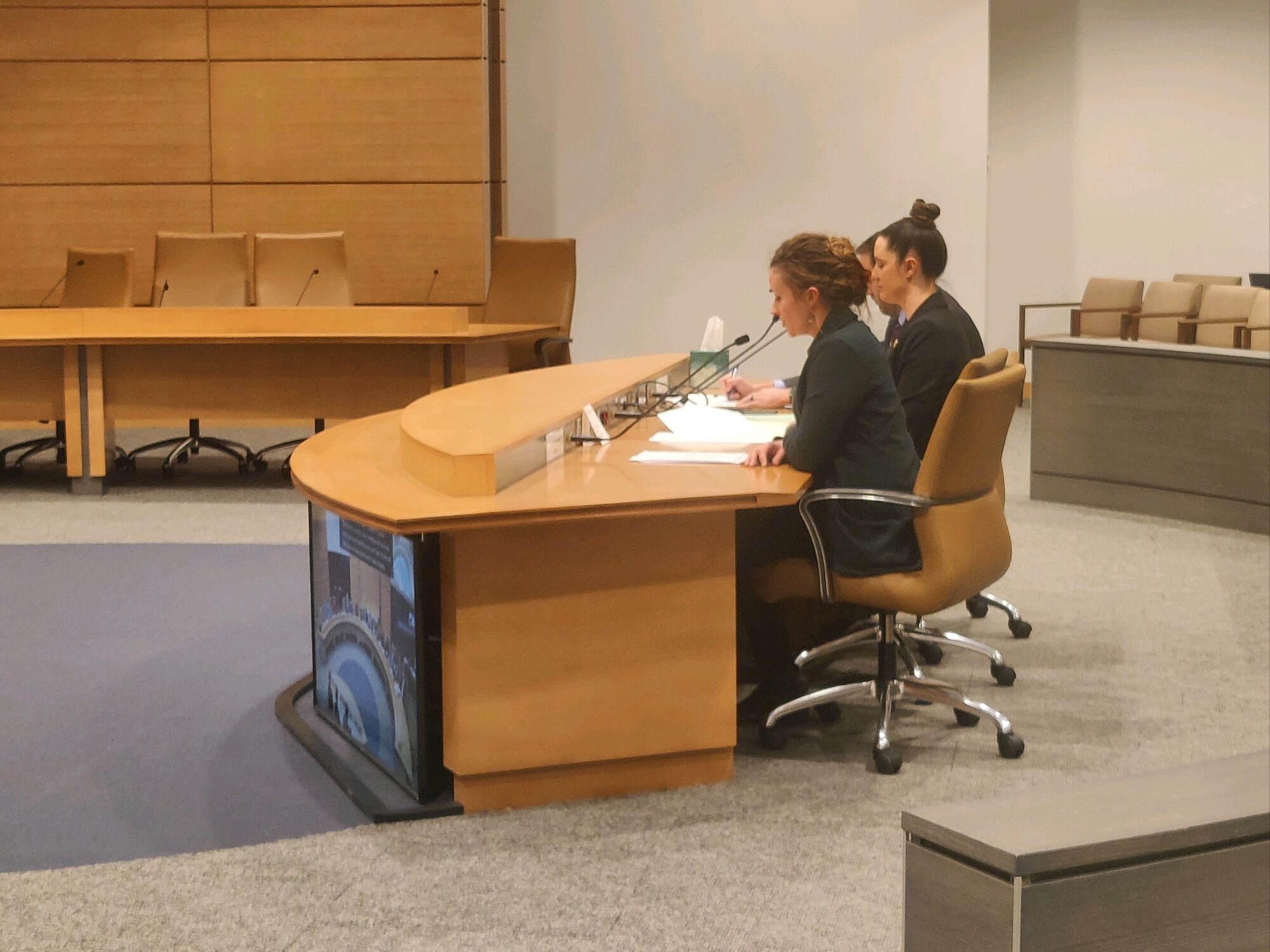
It’s an exciting year for solar at the Minnesota Legislature. In addition to testifying in support of the solar on public buildings bill, Senate File 1404 authored by Senator Lindsey Port (Burnsville) and House File 747 authored by Representative Liz Reyer (Eagan), we’ve also been leading on a bill of our own that would work on the larger issue of “interconnection.” “Interconnection” is the term used when a property owner or solar garden developer is looking to connect their solar, or other distributed generation project, to the grid. Connection to the grid requires utility involvement and permission, which has been a long-running pain point for many utility customers due to cost and delays. Our interconnection bill, Senate File 2747 authored by Senator Nicole Mitchell (Woodbury) and House File 2620 authored by Representative Kristi Pursell (Northfield), would require Xcel Energy to develop and submit a plan that identifies the most urgent “capacity constrained” areas in its service area that most need distribution infrastructure upgrades to facilitate small distributed generation solar projects, like rooftop solar on schools and businesses. This bill will go a long way in helping individuals and communities that want to install solar and builds upon more interconnection progress Fresh Energy made earlier this year.
Establishing a Minnesota Climate Innovation Finance Authority.
With Minnesota’s new 100% clean electricity law, our state is poised to lead the nation in greenhouse gas reductions. However, to realize these goals we need a state-level, mission-driven institution that will help drive the use of a wide array of financial tools to accelerate the transition to clean energy, mitigate climate disruption, and make Minnesota’s infrastructure more resilient to climate change. To that end, Fresh Energy has joined a coalition of partners who submitted a letter to the Minnesota Senate in support of Senate File 2301 authored by Senator Tou Xiong (Maplewood) and House File 2336 authored by Representative Emma Greenman (Minneapolis) that would establish a new quasi-governmental agency that would utilize start-up funds provided by the State of Minnesota to leverage a large amount of federal dollars and drive private capital in our state.
There is much more to come this session, so stay tuned for future updates!
